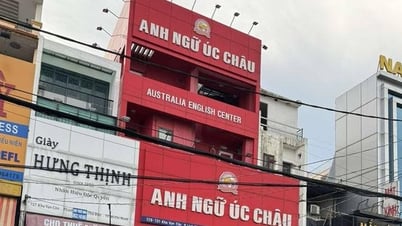That is the opinion expressed by Mr. Nguyen Xuan Thanh, Lecturer of Public Policy, Fulbright University Vietnam, at the workshop "Bank restructuring, how to achieve maximum efficiency?", organized by Tien Phong Newspaper on April 11, in Ho Chi Minh City.
According to Mr. Nguyen Xuan Thanh, the scale of the commercial banking sector currently has 35 banks, of which 5 are zero-dong banks, weak and under special control. Many banks are good for competition, good for businesses to access credit, good for depositors but also very challenging for management, ensuring safe operations because in the banking sector, risks and market failures are very large.
Looking at the history of restructuring weak commercial banks from 2011 to present, there are forms of restructuring such as: Merger, consolidation, participation of new investors, and compulsory transfer.
The reason why joint stock banks are in such a weak state, according to Fulbright experts, is because the banks are manipulated by a group of shareholders who hold a large percentage of ownership to create dominant control through the cross-ownership structure. The cross-ownership structure helps neutralize regulations on ensuring safe operations...
In fact, compulsory transfer to restructure commercial banks is a concept that has been in the Law on Credit Institutions since 2017. However, it will not be applied in practice for the first time until the end of 2024.

Mergers, consolidations, participation of new investors, compulsory transfers... are restructuring plans implemented by the banking industry in recent times.
Lawyer Truong Thanh Duc, Director of ANVI Law Firm, analyzed that when a bank falls into a situation where it does not meet the requirements for safety and quality of operations, it may be subject to early intervention measures. If it still fails to overcome the situation after early intervention, it will be placed under special control. If it still fails to overcome the situation after a period of time, it will be bankrupted or forced to transfer.
For banks in the process of restructuring, Dr. Nguyen Tri Hieu, Director of the Institute for Research and Development of Global Financial and Real Estate Markets, informed that after the law amending the Law on Credit Institutions issued in 2024, a mandatory transfer process will take place for commercial banks under special control.
Specifically, Construction Bank was transferred to Vietcombank and renamed VCBNeo; Oceanbank was transferred to MBBank and renamed MBV; GPBank was assigned to VPBank for restructuring; Dong A Bank was transferred to HDBank and renamed Vikki Bank. In addition to the 4 zero-dong banks , SCB is under special control.

According to experts, banks need to be transparent and publish clear financial reports.
For the restructuring of commercial banks to be successful, according to experts, the State Bank needs to act as a "lender of last resort" to ensure liquidity and prevent systemic risks of collapse. Restructuring must use real financial resources from the state or from new private investors along with changes in the ownership structure towards reducing cross-ownership...
According to Mr. Nguyen Xuan Thanh, a more unified inspection and supervision system is needed to detect and prevent non-compliance in both banking and securities activities (ie in both the money and capital markets).
"Currently, all joint stock commercial banks that are not listed must publish periodic financial reports, except for foreign joint venture banks which do not publish. However, many weak banks also do not publish financial reports. Banks need to be transparent and publish clear financial reports," said Mr. Nguyen Xuan Thanh.
Source: https://nld.com.vn/vi-sao-ngan-hang-roi-vao-yeu-kem-phai-bi-mua-lai-bat-buoc-0-dong-196250411151421947.htm



![[Photo] Close-up of Tang Long Bridge, Thu Duc City after repairing rutting](https://vphoto.vietnam.vn/thumb/1200x675/vietnam/resource/IMAGE/2025/5/19/086736d9d11f43198f5bd8d78df9bd41)
![[Photo] Panorama of the Opening Ceremony of the 43rd Nhan Dan Newspaper National Table Tennis Championship](https://vphoto.vietnam.vn/thumb/1200x675/vietnam/resource/IMAGE/2025/5/19/5e22950340b941309280448198bcf1d9)
![[Photo] General Secretary To Lam attends the conference to review 10 years of implementing Directive No. 05 of the Politburo and evaluate the results of implementing Regulation No. 09 of the Central Public Security Party Committee.](https://vphoto.vietnam.vn/thumb/1200x675/vietnam/resource/IMAGE/2025/5/19/2f44458c655a4403acd7929dbbfa5039)

![[Photo] President Luong Cuong presents the 40-year Party membership badge to Chief of the Office of the President Le Khanh Hai](https://vphoto.vietnam.vn/thumb/1200x675/vietnam/resource/IMAGE/2025/5/19/a22bc55dd7bf4a2ab7e3958d32282c15)



















![[Photo] Prime Minister Pham Minh Chinh inspects the progress of the National Exhibition and Fair Center project](https://vphoto.vietnam.vn/thumb/1200x675/vietnam/resource/IMAGE/2025/5/19/35189ac8807140d897ad2b7d2583fbae)



























































![[VIDEO] - Enhancing the value of Quang Nam OCOP products through trade connections](https://vphoto.vietnam.vn/thumb/402x226/vietnam/resource/IMAGE/2025/5/17/5be5b5fff1f14914986fad159097a677)



Comment (0)